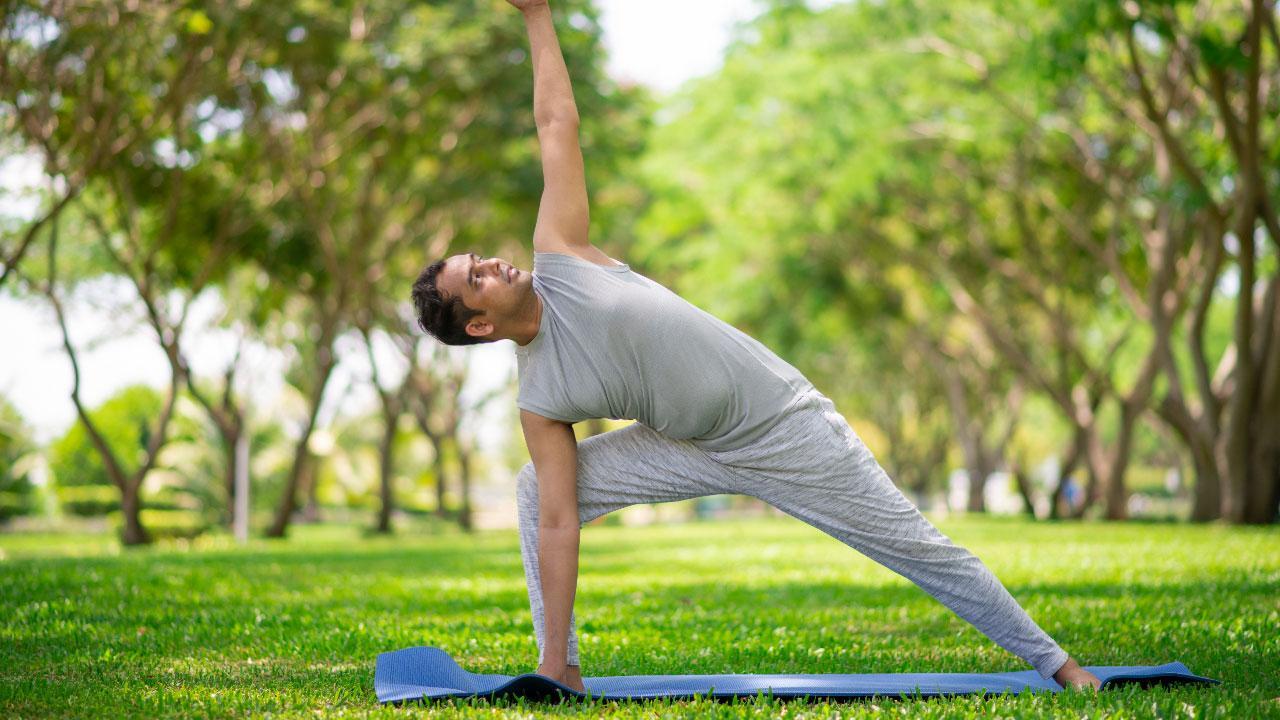
Suffering from high blood pressure (BP)? Doing static isometric exercises — the sort that involve engaging muscles without movement — such as wall squats and planks are best for lowering blood pressure, finds a study.
The study, published online in the British Journal of Sports Medicine, showed that cardio (aerobic exercises); dynamic resistance training, such as squats, press-ups, and weights; high intensity interval training or HIIT (episodic short bouts of high intensity exercise interspersed with short periods of recovery at a lower intensity) are also effective.
But isometric exercises were able to reduce systolic (upper reading) BP by 98 per cent, compared to combined training (76 per cent), dynamic resistance training (46 per cent), aerobic exercise training (40.5 per cent) and HIIT (39 per cent).
Wall squats (isometric) and running (aerobic) was found to be the most effective individual exercises for reducing systolic BP (90.5 per cent) and diastolic (lower reading) BP (91 per cent), respectively, with isometric exercise, overall, the most effective for reducing both blood pressure elements.
“Overall, isometric exercise training is the most effective mode in reducing both systolic and diastolic blood pressure,” said the researchers from Canterbury Christ Church University, UK.
“These findings provide a comprehensive data driven framework to support the development of new exercise guideline recommendations for the prevention and treatment of arterial hypertension.”
Previously published research shows that exercise in general is associated with significant reductions in blood pressure, with aerobic (cardio) exercise, such as walking, running, and cycling, the type primarily recommended for managing blood pressure.
But this recommendation is largely based on older data that exclude the newer forms of exercise, such as HIIT and isometric exercise, meaning that the current recommendations are probably outdated, the researchers said.
It may be time to review the current exercise guidelines for the prevention and treatment of high blood pressure, they noted.
To potentially update information on the best form of exercise for controlling blood pressure, they included 270 randomised controlled trials published between 1990 and February 2023 in the analysis, with a pooled data sample size of 15,827 participants.
The pooled data analysis showed significant reductions in resting systolic and diastolic BP after all the various categories of exercise, but with the largest falls in both systolic and diastolic blood pressure after isometric exercise training.
This story has been sourced from a third party syndicated feed, agencies. Mid-day accepts no responsibility or liability for its dependability, trustworthiness, reliability and data of the text. Mid-day management/mid-day.com reserves the sole right to alter, delete or remove (without notice) the content in its absolute discretion for any reason whatsoever
Stay connected with us on social media platform for instant update click here to join our Twitter, & Facebook
We are now on Telegram. Click here to join our channel (@TechiUpdate) and stay updated with the latest Technology headlines.
For all the latest Health & Fitness News Click Here
